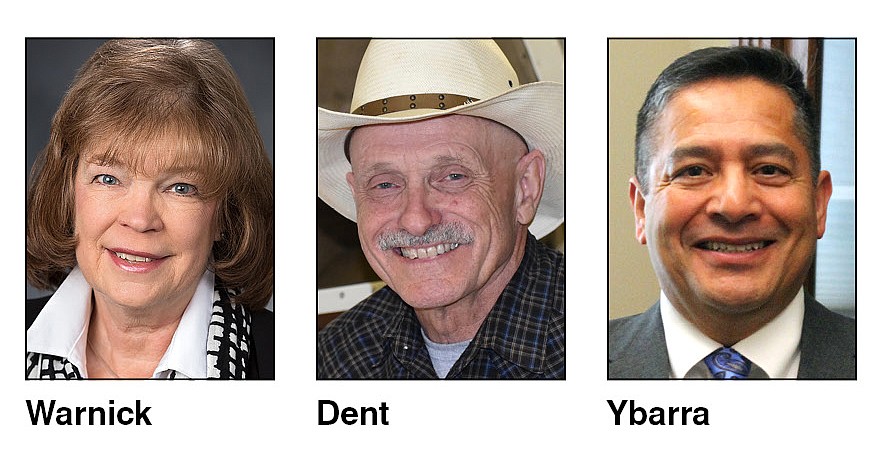A look back: District 13 legislators reflect on losses and triumphs of the recently concluded legislative session
If there is one word that can describe how this past legislative session went for Rep. Tom Dent, R-Moses Lake, it would be: difficult.
“(I’m) not even sure that’s the proper word,” Dent said in an interview with the Herald on Tuesday.
He and other local legislators discussed the recent session with the Herald. April 25 was the last day for this year’s session.
A handful of controversial bills, including legislation that would impose a 7% capital gains tax, as well as a low-carbon fuel standard, were introduced and ultimately made their way to the governor’s desk.
“Did we (the Legislature) serve the people? I think not very well,” Dent said. “I think we could do much better … We did the best we could, but I don’t think we truly served the people.”
Rep. Alex Ybarra, R-Quincy, said proponents of the capital gains tax bill say the state has a regressive tax system. If that is the case, he said it does not make sense to pass a bill that would impose another tax.
“It didn’t make any sense at all,” Ybarra said.
Sen. Judy Warnick, R-Moses Lake, said one of the concerns she still has with the capital gains tax bill is the impact it would have on small, family-owned farms.
Dent said the inability to fully interact with other members of the Legislature and the community made it difficult to build meaningful connections. Meeting via Zoom is OK, but it can get challenging when schedules are tight, he said.
“One of the things I’ve always said is politics is relationships,” Dent said. “Without relationships, you’re not going to be successful in politics or in what you’re trying to accomplish.”
Warnick said the Legislature did a good job trying to keep the session viable, but it was still frustrating that most legislators could not be at the state Capitol in person.
“It makes a difference when you’re sitting across the table from somebody,” Warnick said. “The frustrating part was just the lack of personal contact.”
Ybarra said one of the “good parts” of the session was hearing testimonies from those who live hours away from Olympia. It can be difficult for some people to drive to and from the state Capitol if they live in towns like Quincy, he said.
Dent said one of the bills the Legislature was not fully able to mitigate was Senate Bill 5237, which is a bill that would expand access to child care and early childhood development programs.
“We weren’t able to really find … more of a compromise that worked better for everybody … because we didn’t have contact with people,” Dent said. “We didn’t have those … meetings in the elevators or the stairwell.”
On the flip side, one of the bills that gave the Legislature a “big win” was the passage of House Bill 1168, Dent said, which looks to improve forest health and reduce the risk of wildfire dangers.
Warnick said another good bill that passed was one of her bills, SB 5236. The bill would extend the certificate of need exemptions for hospitals looking to implement more psychiatric beds in their facilities.
“(It will) allow hospitals to add behavioral health beds in a more expeditious manner,” Warnick said.
Ybarra said the passage of one of his bills, HB 1378, was another notable thing. The bill would allow health care practitioners to supervise medical assistants, who are doing telemedicine work, through audio and visual means.
Farmworkers who live in rural areas like Quincy often work at areas several miles away from the nearest hospital or clinic, Ybarra said. HB 1378 would help ensure health care practitioners can treat patients quicker.
“I think that bill is really going to help a lot in the coming years,” Ybarra said.



